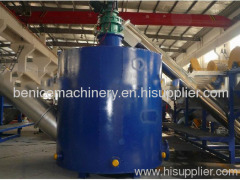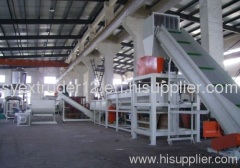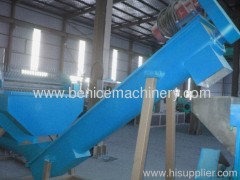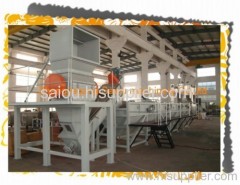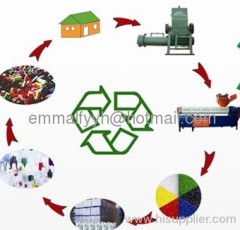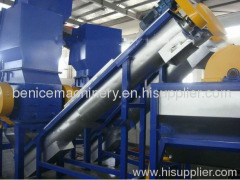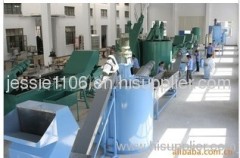
PP PE film washing line
10000.0~50000.0 USD
| Min. Order: | 1 Set/Sets |
|---|---|
| Trade Term: | FOB |
| Payment Terms: | L/C, T/T |
| Supply Ability: | 200 sets per year |
| Place of Origin: | Jiangsu |
Company Profile
| Location: | Suzhou, Jiangsu, China (Mainland) |
|---|---|
| Business Type: | Manufacturer |
| Main Products: | Plastic Extruders |
Product Detail
| Model No.: | LS-WA |
|---|---|
| Means of Transport: | Ocean |
| Brand Name: | LIANSHUN |
| washing output: | 300-1500kg/h |
| Production Capacity: | 200 sets per year |
| Packing: | film or wooden case |
| Delivery Date: | 30 days |
Product Description
PP PE Film Washing Line
Specifications
This line is used for Post-industrial and post-consume PE/PP films
This line is used for Post-industrial and post-consume PE/PP films
Size Reduction | Wet grinding: A wet granulator size-reduces the films while the wash water removes paper and foreign body contamination from the films. |
Separation of dirty water: The wash water from the granulator is separated from the PP/PE films. | |
Separation in water | |
Density separation step: In the water bath or with a hydro cyclone a heavy fraction is separated from the light fraction (PP/PE) | |
Hot washing step | Material storage basin / preheating: The films are heated to the temperature of the hot washing step. |
Intensive washing and dispersion: The films are thoroughly washed in hot water, soda and detergents; glues, ink and oil are dissolved. | |
Separation according to density: In a poaching tank, remaining polyester and sank dirties are separated from the polyolefin. | |
Separation of the suds: The hot wash water with the detergents in it is separated from the films. | |
Treatment of the suds: The hot wash water is enriched with lye and detergents. | |
Clean rinsing: The clean films are rinsed in water in order to obtain a neutral pH value. | |
Intensive washer and spraying washer: As an compliment to separation tank to remove the suds and dirties from the films | |
Treatment of films | Mechanical dewatering: The films are dewatered with a centrifuge |
Thermal dryer: The films are dried to the required residual moisture with a thermal heater | |
Cyclone silo: Separate the remaining dirty powders with blower and store the crystallized films | |
Bag system: Store the flakes in bags for reuse | |
Water Treatment | Water collection, screening: The dirty water is collected in a pit and any contamination larger than appr. 0.1 mm is removed. |
Sedimentation: The screened water is stored in a sedimentation basin for the sedimentation of light contamination; the result is circulation water. | |
Storage: The mechanically treated circulation water is stored. | |
Treatment of fines: In a chemical or physical water treatment plant | |
Reconveying into the plant: A pump conveys the circulation water back into the plant. | |
Neutralization (waste water): Decrease of the pH value according to the regulations for public water treatment. | |
These functional units represent possible procedure steps when PET bottles are recycled | |
They are selected according to the frame parameters of the feed material and the desired final product when such a plant is designed. | |
The single functional units are combined with conveying systems (belt conveyors, conveying screws, elevators, blowers, pumps) appropriate to the specific nature of the product and in relation to their location. Type and volume of the necessary conveying systems are determined in respect to the project. | |


